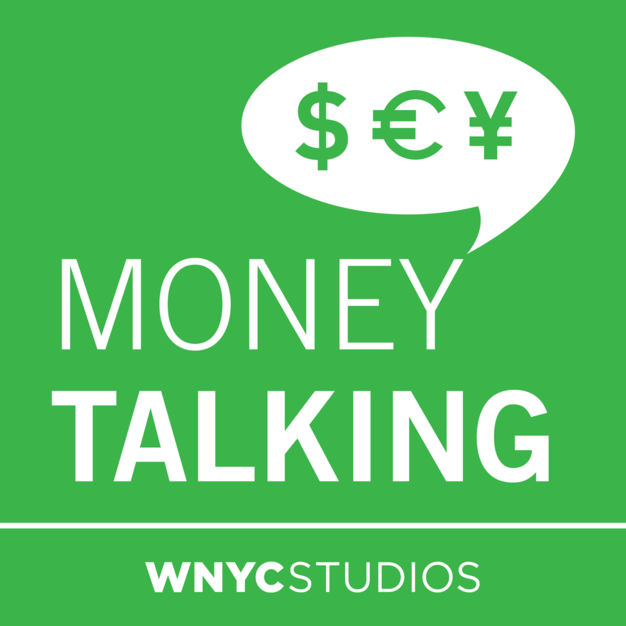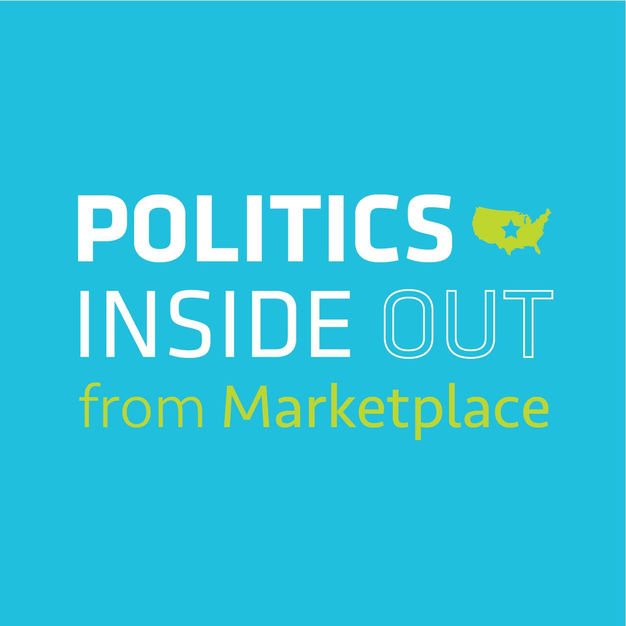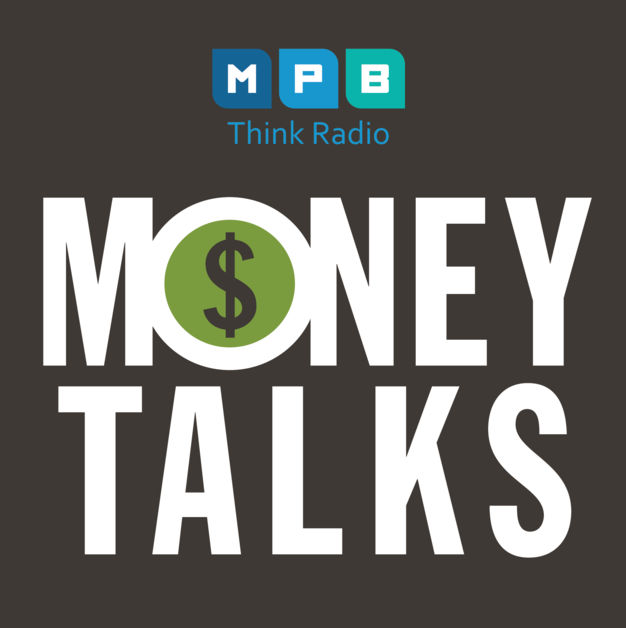
Money Talking
WNYC’s Money Talking brings you conversations that go beyond the headlines and economic jargon for a look at what’s happening in the business world and in the workplace – and why it matters in your life.
- 7 minutes 29 secondsSubway’s franchisees allege corporate mismanagement
The largest fast-food company in the world -- with about 24,000 stores -- was once known for its rapid expansion mindset. Now, Subway is closing stores faster than ever and pushing out franchise owners in the process.
In a recent report by the New York Times, franchisees across the country said that seemingly tiny violations, like cucumbers cut too thick and smudges on glass doors, have cost them their businesses. And when they try appeal to Subway's corporate leadership? They rarely get a response.
This week on Money Talking, guest host Ilya Marritz talks to Tiffany Hsu, a business reporter at the New York Times who co-reported the piece, about how Subway's efforts to scale back have impacted franchisees.
19 July 2019, 4:00 pm - 7 minutes 32 secondsIs a New Space Race on the Horizon?
Next week marks fifty years since Neil Armstrong took “one small step” on the moon’s surface. The Apollo 11 mission was an historic voyage, fulfilling President John F. Kennedy’s goal of reaching the moon by the end of the 1960s. More than half a billion people watched the astronauts live on television. But in the years that followed, America’s interest and commitment to space exploration largely disappeared.
Yet the country’s ambitions in space are far from over. In March of this year, Vice President Mike Pence expressed a renewed sense of urgency.
“Make no mistake about it — we're in a space race today, just as we were in the 1960s, and the stakes are even higher,” he told attendees at a meeting of the National Space Council in Alabama.
At the same meeting, Pence presented a new timeline for landing humans on the moon again: Within the next five years, four years sooner than the administration's initial timeline of 2028, leaving some to wonder if a new space race could be on the horizon.
This week on Money Talking, Charlie Herman talks to Tim Fernholz, a reporter at Quartz covering space and author of Rocket Billionaires: Elon Musk, Jeff Bezos and the New Psace Race, about the latest chapter of space exploration.
12 July 2019, 4:00 pm - 7 minutes 21 secondsFrom Wall Street to Walmart, Businesses Embrace Pride
This weekend marks the 50th anniversary of the Stonewall Riots and the birth of the modern gay rights movement in this country. Over the intervening years as attitudes towards LGBTQ people have changed, corporate America has taken note. Whether it's McDonald's selling special-edition “Pride Fries” or Walmart’s (online) Pride Shop, companies have very publicly been displaying support for the community over the last few years.
It’s a dramatic shift from the days of Anita Bryant and Florida orange juice or companies like Wendy’s pulling their advertisements after Ellen came out on her sitcom. The greater acceptance of the LGBTQ community has presented an opportunity for businesses. While some take issue with companies commercializing this weekend's pride events, it’s hard to ignore how much mainstream businesses have embraced LGBTQ culture and consumers.
This week on Money Talking, Charlie Herman talks to Jim Ellis, assistant managing editor at Bloomberg Businessweek, about the business of pride past, present, and future.
28 June 2019, 4:00 pm - 7 minutes 32 secondsBusiness Leaders Find A Friend in Trump
How a little known group of business leaders is influencing the administration's policies on trade, business and the economy.
21 June 2019, 4:00 pm - 7 minutes 42 secondsMurder! Scandal! Bankruptcy! The History of the Plaza Hotel
Since its opening in 1907, the story of the hotel has been the story of New York: a history littered with colorful guests, financial uncertainty, and a controversial transformation.
14 June 2019, 4:00 pm - 7 minutes 40 secondsThe Debate Over Rent Regulations
With just a few weeks left in the New York State legislative session, the future of rent regulations is still uncertain.
7 June 2019, 4:00 pm - 7 minutes 41 secondsTrump Targets Huawei
The president has effectively banned U.S. companies from doing business with the Chinese telecom giant. What it means for national security, trade, our phones, and more.
31 May 2019, 4:00 pm - 7 minutes 39 seconds'Rabbit' Runs Away With Record Sales Price
A three-foot tall, stainless steel rabbit by Jeff Koons set the art world abuzz after selling for a record $91.1 million at auction. What does it tell us about the economy?
24 May 2019, 4:00 pm - 7 minutes 28 secondsWhere Things Stand Between the U.S. and China Over Trade
President Donald Trump has stymied hopes of a trade deal by raising tariffs on Chinese goods. In retaliation, China put additional tariffs on U.S. goods, causing the stock market to plunge that day. The Trump administration responded to that by taking steps to implement tariffs on even more Chinese products.
So, who’s winning the trade war?
Trump’s approach could signal a historic shift in U.S. policy which has largely encouraged free trade around the globe. The casualties of this fight could include American farmers, the Chinese companies, and the U.S. economy and consumers. But it might also lead to changes in how U.S. companies conduct business in China.
This week on Money Talking, POLITICO Chief Economic Correspondent Ben White talks to host Charlie Herman about how much these escalating tensions should concern us.
17 May 2019, 4:00 pm - 7 minutes 28 secondsHey, Big Spender: Presidential Candidates And The Race to Raise Money
Recent financial reports filed by the 2020 presidential candidates show vastly different amounts of money raised in varying amounts from many different sources. Some candidates are focusing on small donors, others are turning to high-dollar bundlers and some are dipping into their own bank accounts.
For example, Senator Elizabeth Warren raised raised $6 million in three months for her campaign, while Joe Biden and Beto O’Rourke each raised that much in just a day. Yet with more than a year to go until the 2020 election, how much will the money they raise today matter in the long run?
This week on WNYC’s Money Talking, host Charlie Herman talks to CNN national political writer Fredreka Schouten and The Washington Post national political reporter Michelle Lee about the candidates’ funds so far and their chances in the long run.
10 May 2019, 4:00 pm - 7 minutes 23 secondsField of Presidential Dreams
After months and months of speculation, former Vice President Joe Biden announced he’d be running for president in 2020. Already an early frontrunner, Biden joins a crowded field of potential Democratic nominees. There are now more than 20 candidates running, from policy wonk Elizabeth Warren to newcomer Pete Buttigieg to 2016 veteran Bernie Sanders.
The Iowa caucuses are nine months away and if everyone stays in the race, it could challenging for voters to keep track of where the candidates stand on critical policy issues like healthcare, taxes, and climate change.
This week on Money Talking, WNYC's Charlie Herman talks to Rick Newman, senior columnist for Yahoo Finance, about some of the fiscal policies being put forth by the Democratic contenders — and what they might mean for your pocketbook.
3 May 2019, 4:00 pm - More Episodes? Get the App
Your feedback is valuable to us. Should you encounter any bugs, glitches, lack of functionality or other problems, please email us on [email protected] or join Moon.FM Telegram Group where you can talk directly to the dev team who are happy to answer any queries.
 Actuality
Actuality
 Politics Inside Out from Marketplace
Politics Inside Out from Marketplace
 Money Talks
Money Talks
 Marketplace Weekend
Marketplace Weekend
 Marketplace All-in-One
Marketplace All-in-One
 Wealth & Poverty from Marketplace APM
Wealth & Poverty from Marketplace APM